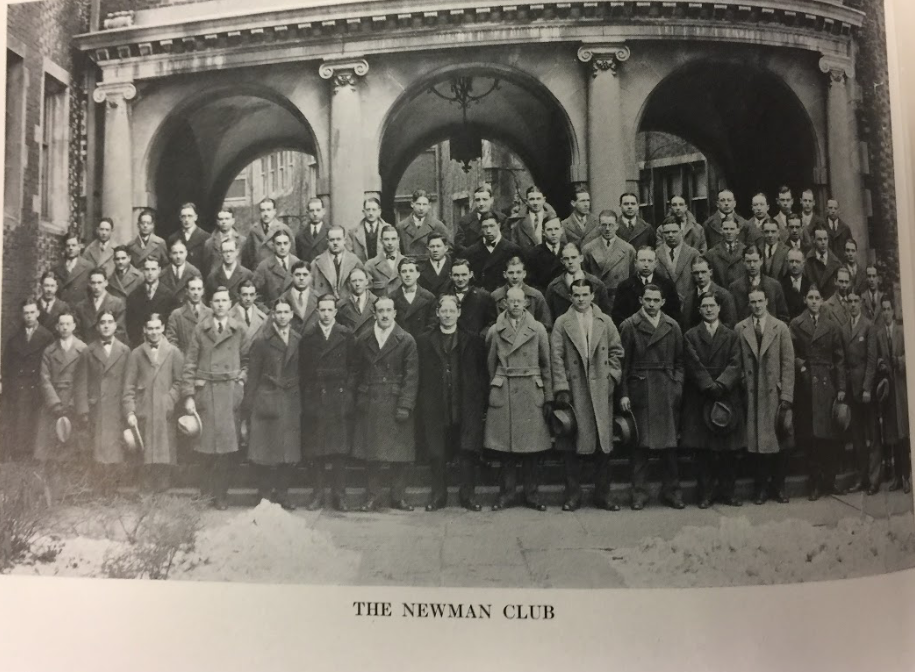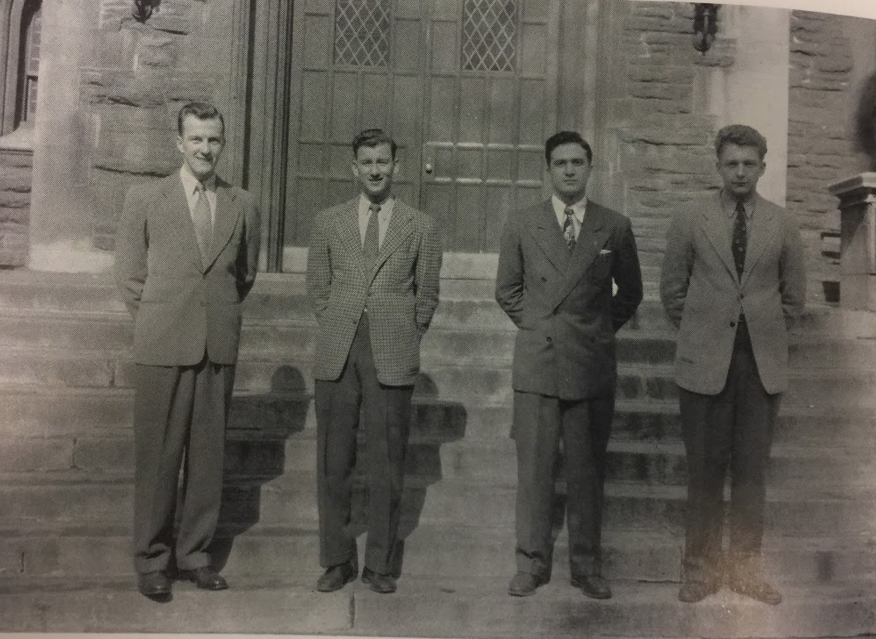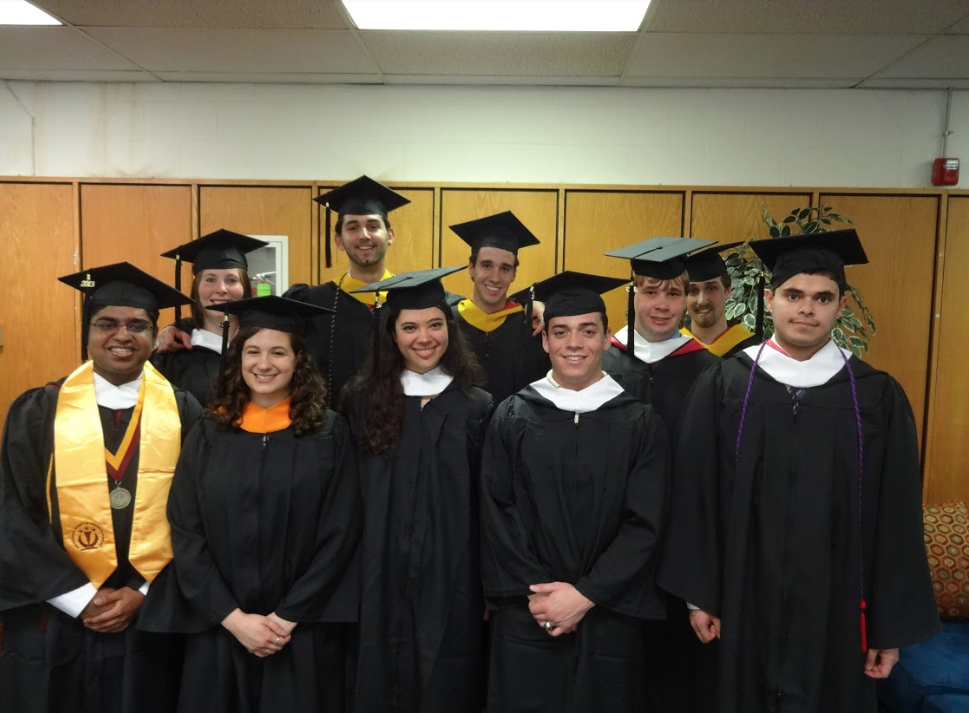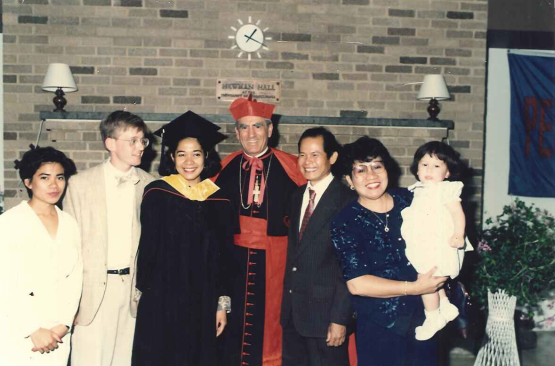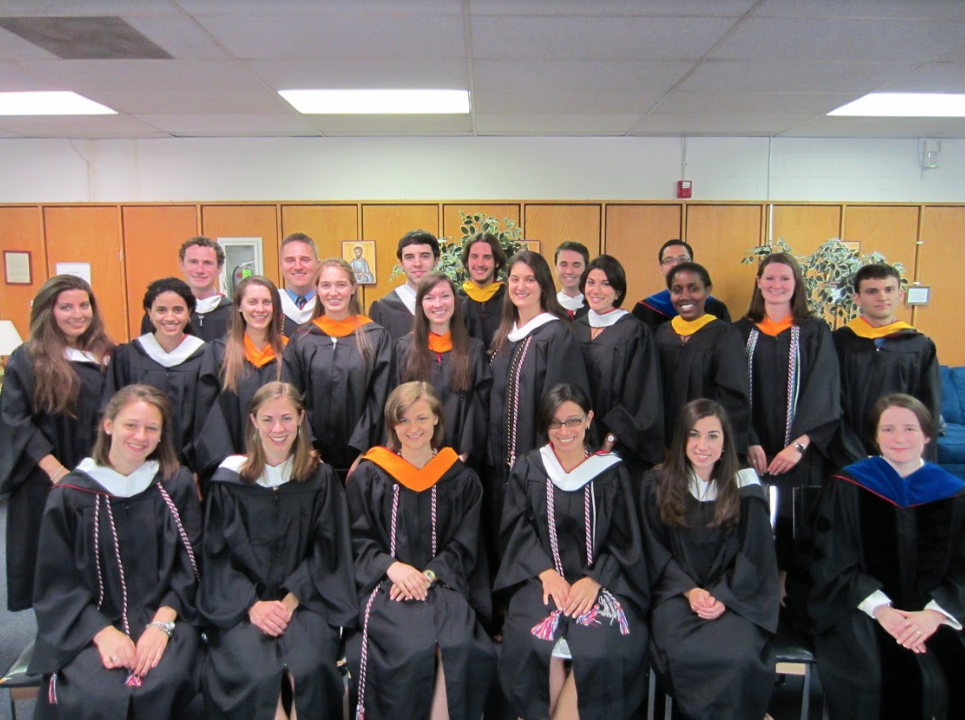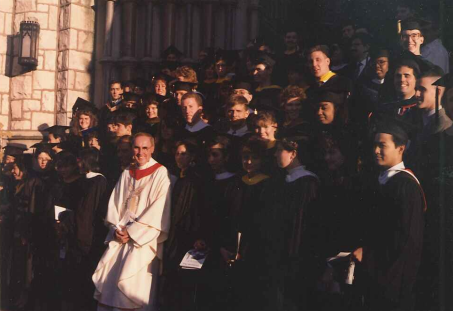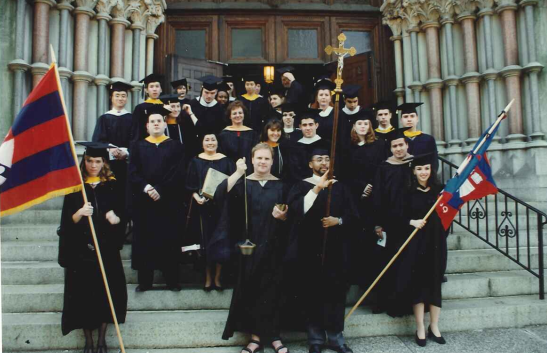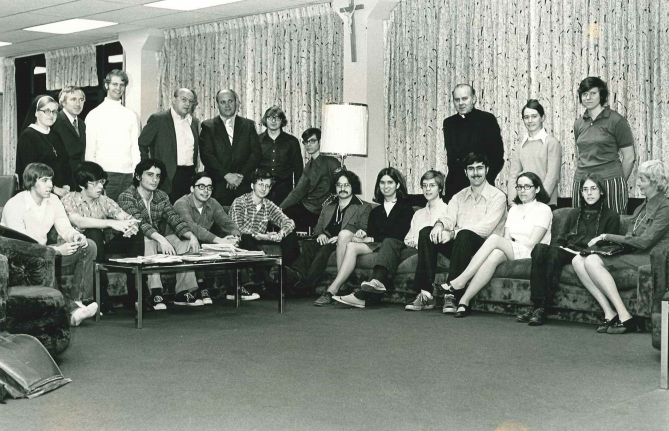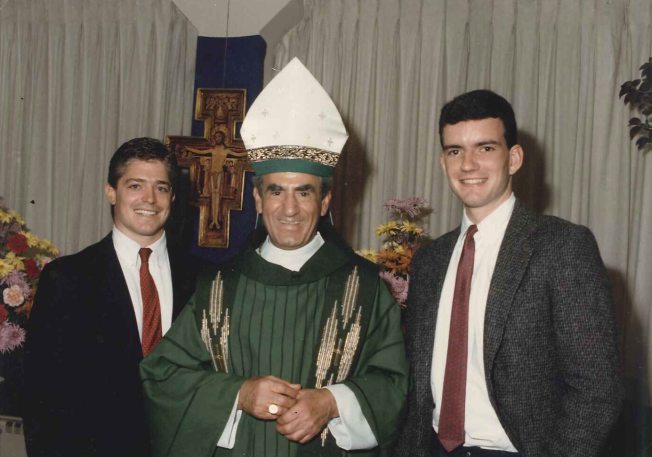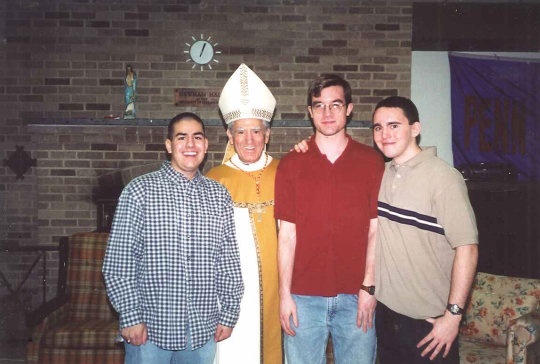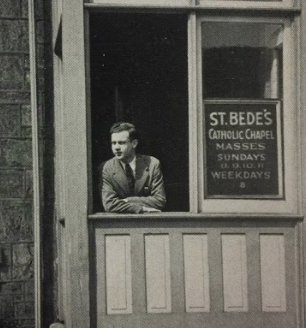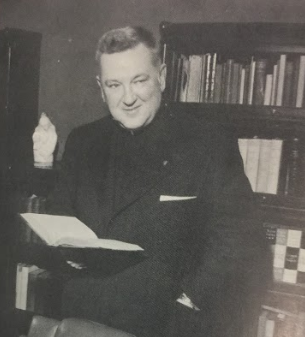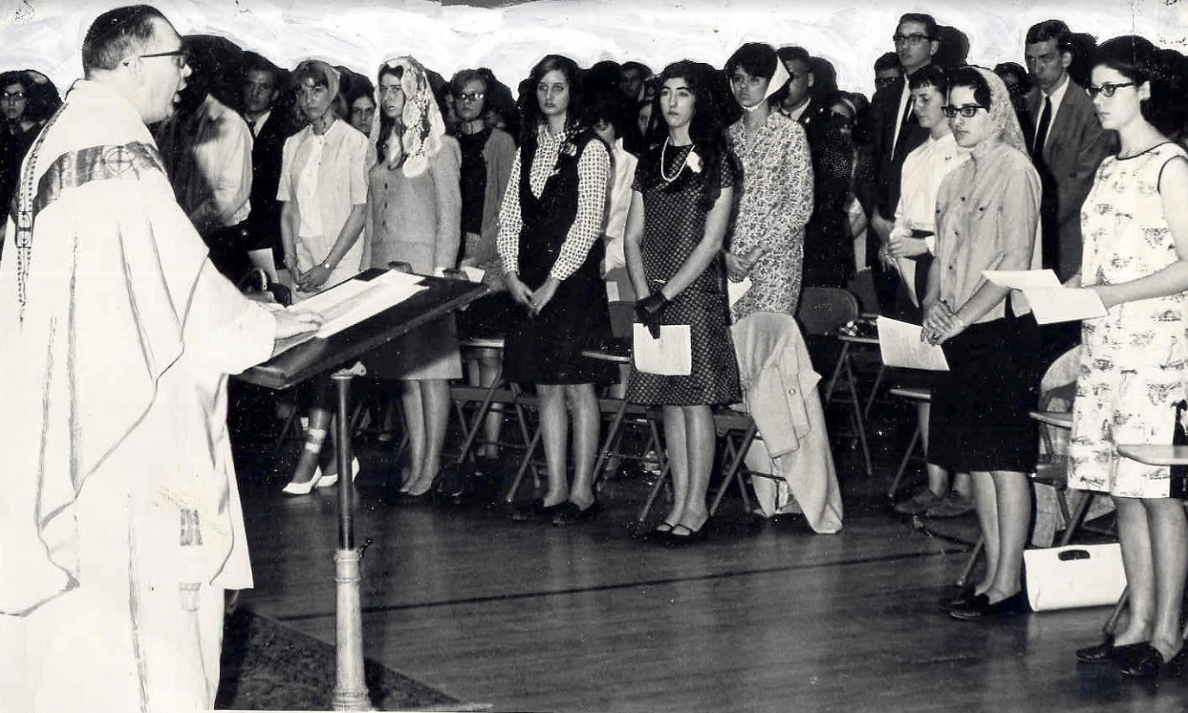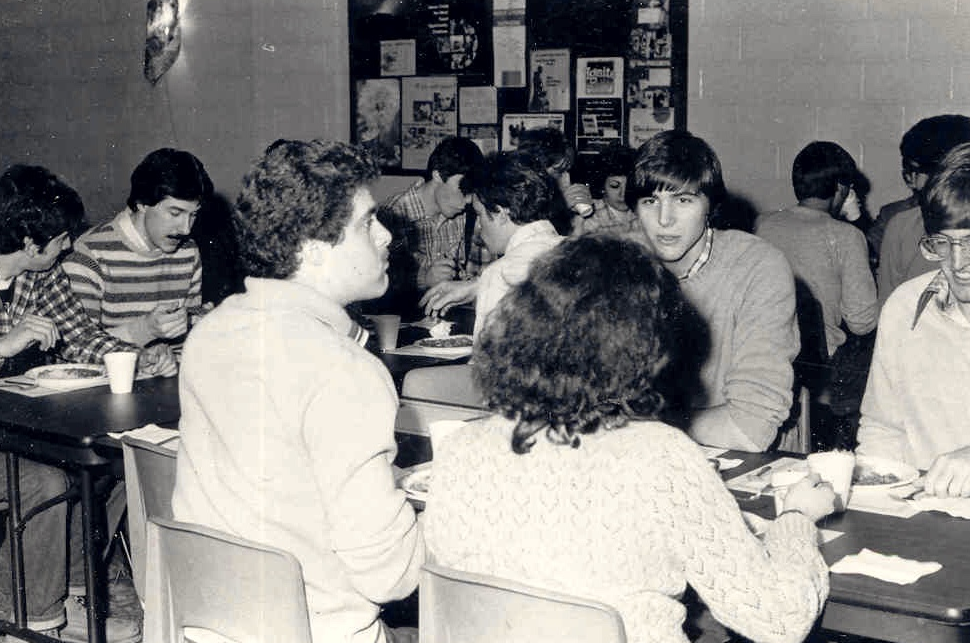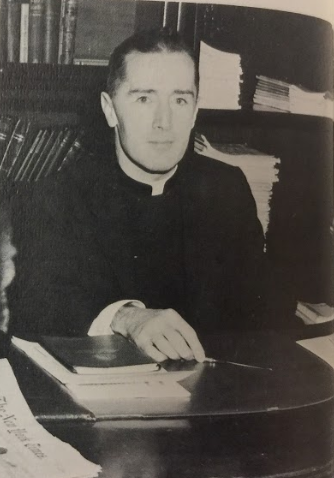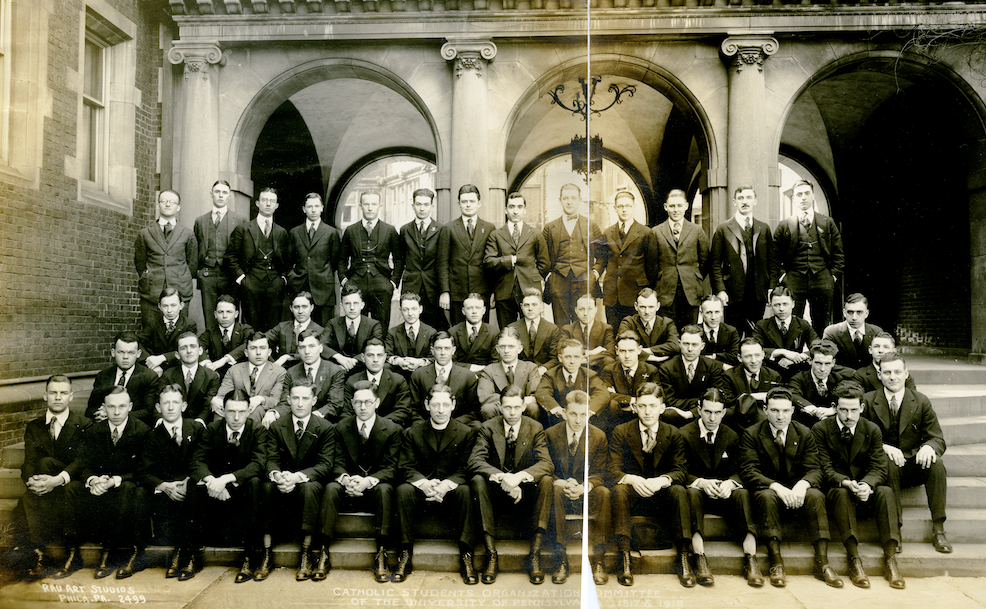
The Oldest Newman Center In The Country
Serving the University of Pennsylvania since 1893
Birth of the Newman Movement
It was in 1893 that Timothy Harrington, a graduate medical student at the University of Pennsylvania, together with John J. Gilbride, James J. Walsh and his brother Joseph met with Father Garvey, pastor of St. James Parish, to explore ways of providing students with an ongoing enrichment of Catholic faith.
The fruit of their work was the establishment of the Newman Club and eventually the Newman Apostolate, a recognized ministry within the Catholic Church. Newman Centers take their name from John Henry Cardinal Newman, the 19th century theologian whose insights placed theology at the heart of the university experience.
A Place Called “Newman”
A Brief History
BY JOHN ORTEGA, SAS’20
“Community.” “Home.” “Blessing.” “Miracle.”
‘Newman’ means a multitude of different things to so many people who have experienced the ministry provided by the over 2,000 Newman Centers that have been established throughout the United States over the past 125 years. These Catholic campus ministries owe their origins to the first Newman club in the country, which was founded at the University of Pennsylvania in 1893 by a medical student named Timothy Harrington. He and some colleagues took inspiration from now St. John Henry Newman, who was convinced that students cultivate their faith together with their university education.
A pivotal player in this movement was himself nicknamed “Mr. Newman,” Rev. John W. Keogh. Born in “Fishertown” where he was dubbed the “Iron Duke”, he reawoke the defunct Newman Club at Penn in 1913 and grew it into a “model for the nation” by establishing Newman Hall on Spruce St. with its famed St. Bede’s Chapel. He became chaplain general for the Federation of Catholic College Clubs and served for nearly two decades, proving himself to be “the staunchest friend and bravest promoter of the Newman Movement.” He toured the country addressing national conventions, founding clubs, encouraging chaplains and pleading for bishops to help. He was considered a ‘radical’ for seeking Church approval of nonsectarian education.
Many stories could be told of Penn Newman and its different stages, as it evolved from a club to a ministry throughout its 125 years. No matter the location and regardless of the chaplain or student leaders, Newman has, is, and will always be a place where Christ-centered "heart-to-heart" relationships are formed. Harrington ensured, through the founding of Penn Newman, that there would always be a home and community for Catholics at secular universities across the United States. Many decades after the Penn Newman Club’s founding, Harrington would go on to say the following words, which echo for eternity:
“That this organization has lived and grown and that its influence has come down to the students of today is added proof that there was a place in the University of Pennsylvania as there is in all great universities, for a Catholic club.”

